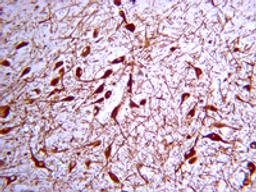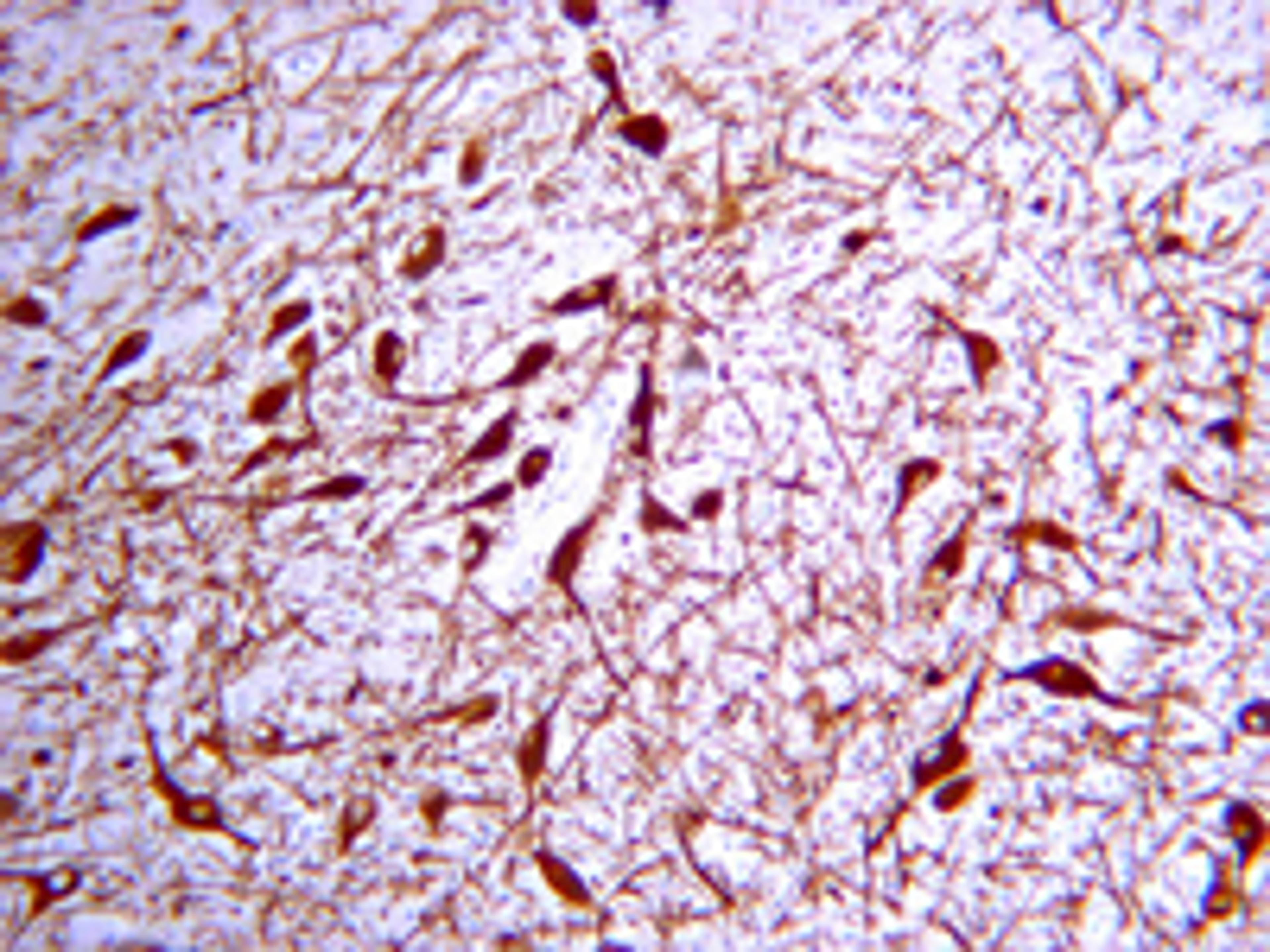Anti-Tyrosine Hydroxylase Antibody
Product Details
- Cat. No.
- AB152
- Type
- Primary Antibody
- Clonality
- Polyclonal
- Host
- Rabbit

The supplier does not provide quotations for this antibody through SelectScience. You can search for similar antibodies in our Antibody Directory.
Description
Tyrosine hydroxylase (also know as Tyrosine 3-hydroxylase and Tyrosine 3-monooxygenase) plays an important role in the physiology of adrenergic neurons. It is the first and rate-limiting enzyme involved in the biosynthesis of the catecholamines Dopamine and Norepinephrine from tyrosine. TH is, therefore, a useful marker for dopaminergic and noradrenergic neurons. The enzymatic activity of TH requires ferrous ions as cofactors and is believed to be regulated by phosphorylation. At least four isoforms of human TH have been identified which result from alternative splicing.
Biological Information
- Clonality: Polyclonal
- Host: Rabbit
- Reactivity: Cat (Feline), Drosophila melanogaster, Ferret, Human, Mouse, Rat, Squid
Handling
- Storage: buffer containing liquid in 10 mM HEPES (pH 7.5), 150 mM NaCl (pH 7.5), 100 ug/mL BSA and 50% glycerol
- Specificity: 5
Applications
- ELISA (ELISA)
- Immunofluorescence (IF)
- Immunohistochemistry (IHC)
- Immunohistochemistry (Paraffin-Embedded Sections) (IHC (P))
- Immunoprecipitation (IP)
- Western Blotting (WB)
A specific antibody, works well!
Immunofluorescence
The antibody works well without any unspecific signal, with a strong signal covering all the structure of dopaminergic neurons. I've used the antibody in incubation for 3 days at 4 degrees in normal donkey serum, bovine serum albumin, and 0.1% Triton-X100 to stain organotypic brain cultures of the substantia nigra. The secondary antibodies was an AlexaFluor 546 (red). No differences were observed in different lots of the antibody.
Review Date: 4 Dec 2018 | Merck KGaA, Darmstadt, Germany



